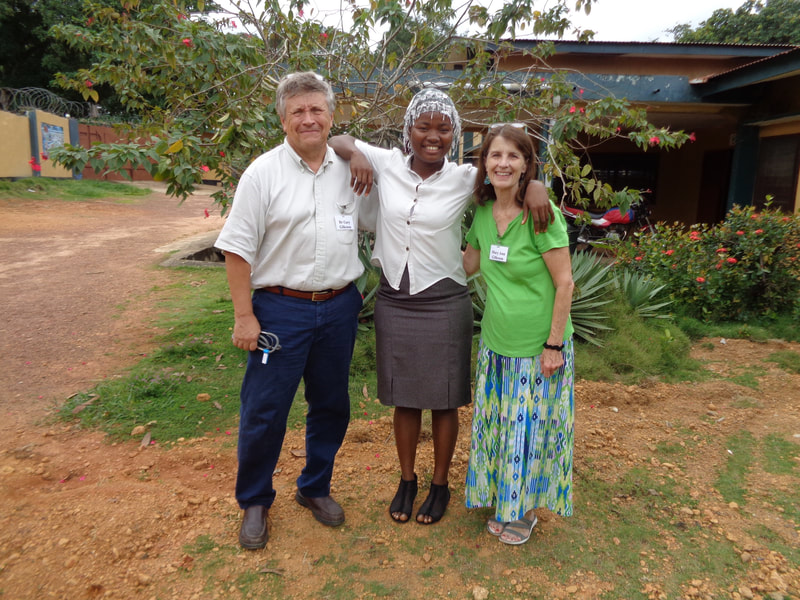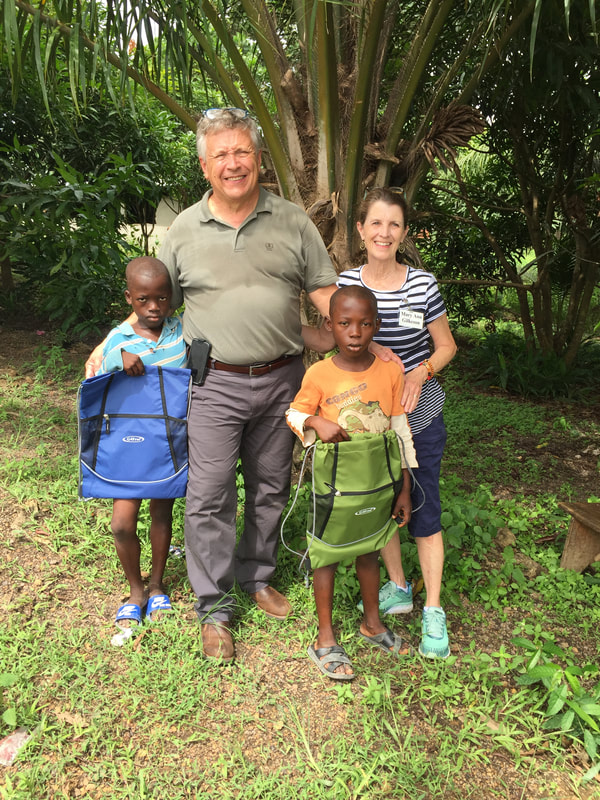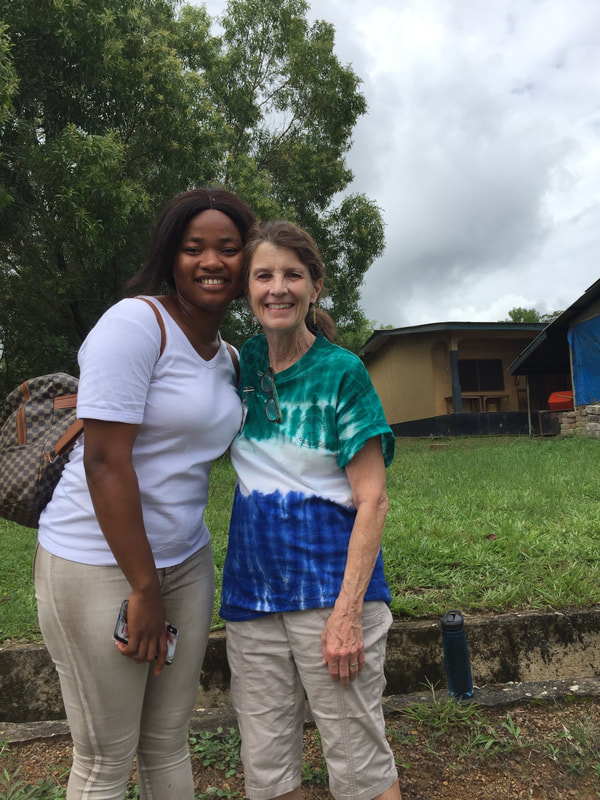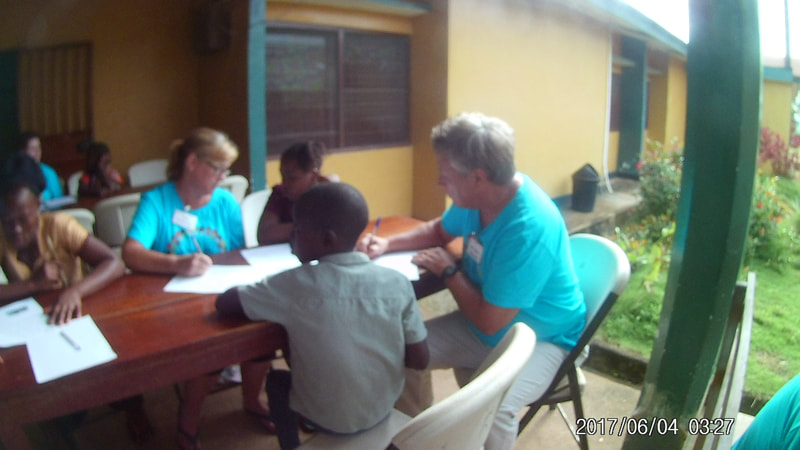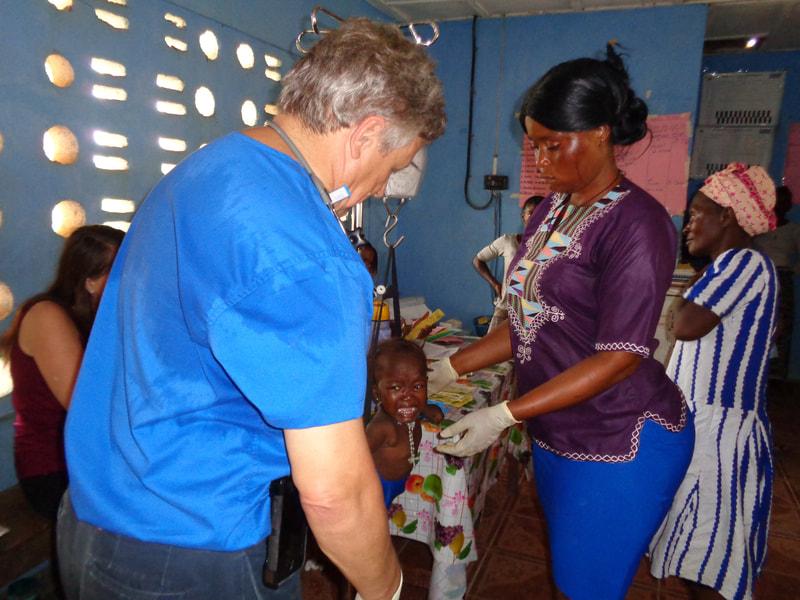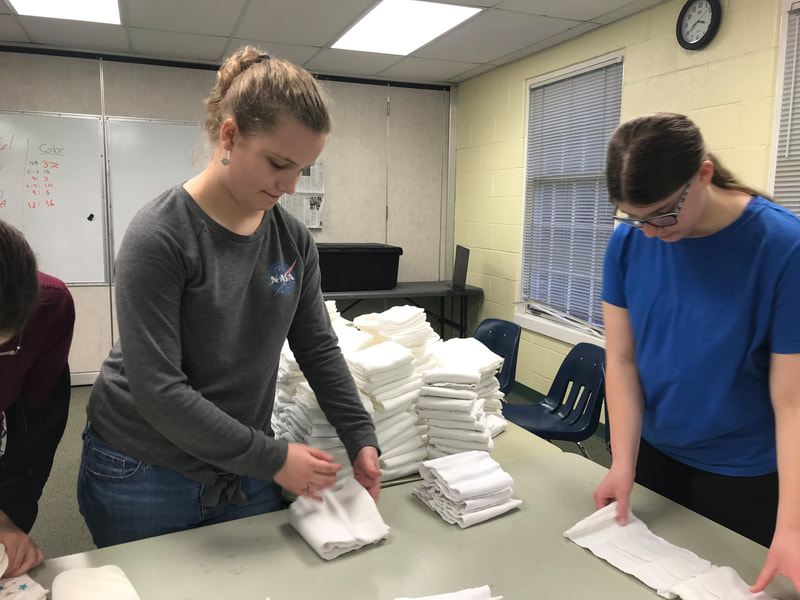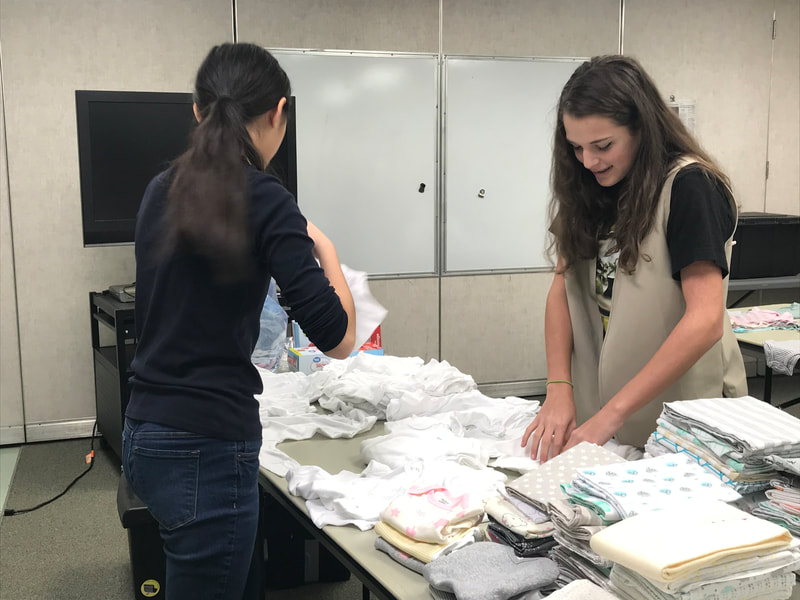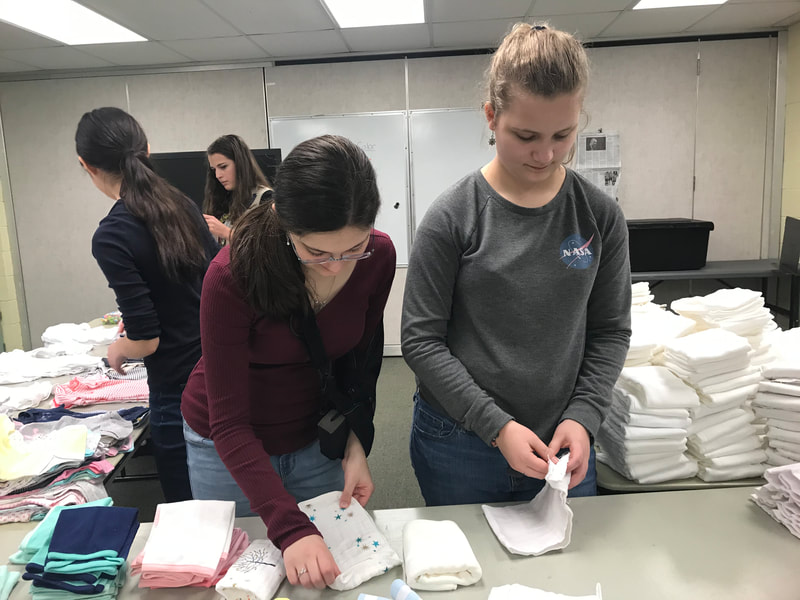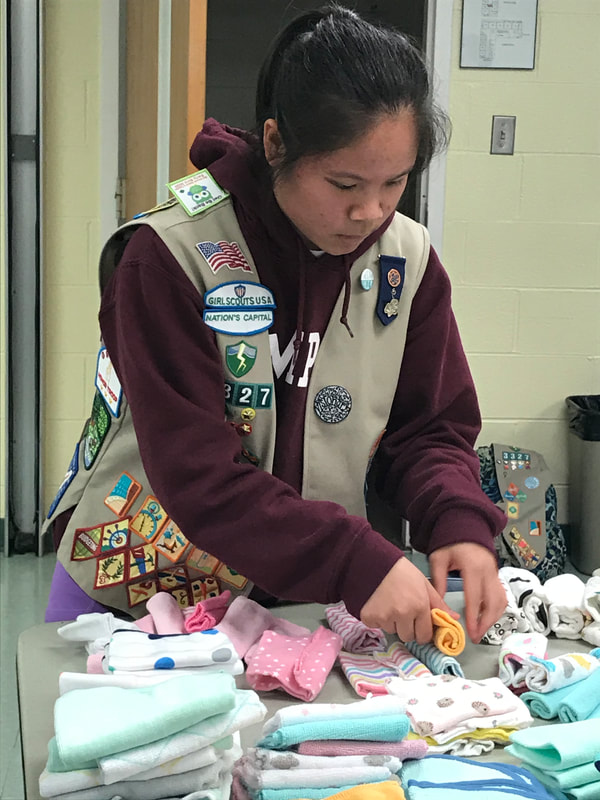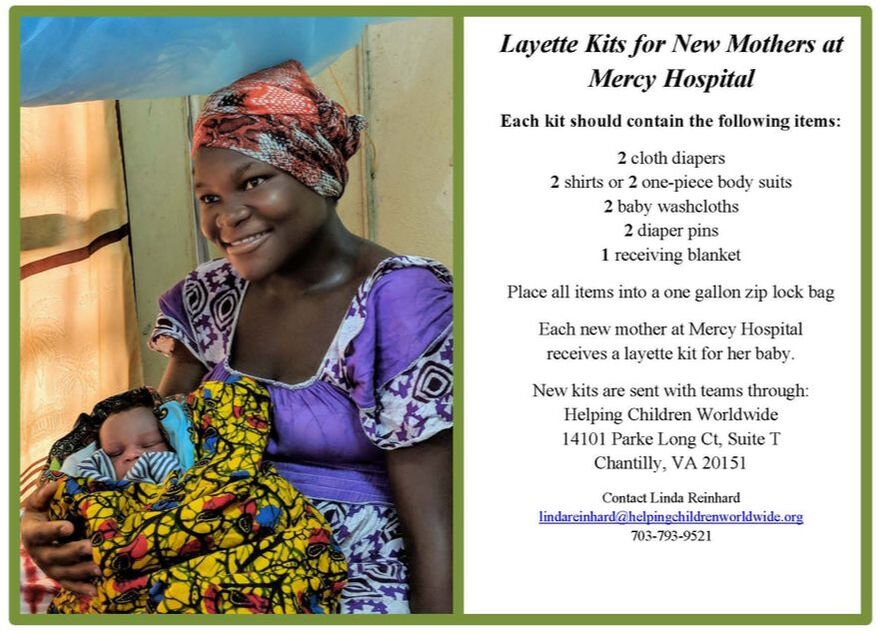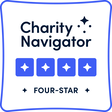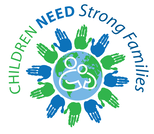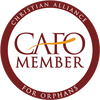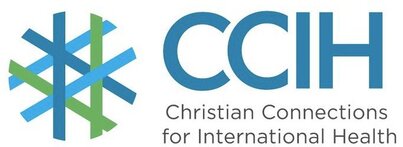A renowned rheumatologist finds out that God has a purpose for him that he never expected: saving lives and making friends in Sierra Leone.By Gary S. Gilkeson, MD, Distinguished University Professor, Associate Dean for Faculty Affairs and Faculty Development Medical University of South Carolina 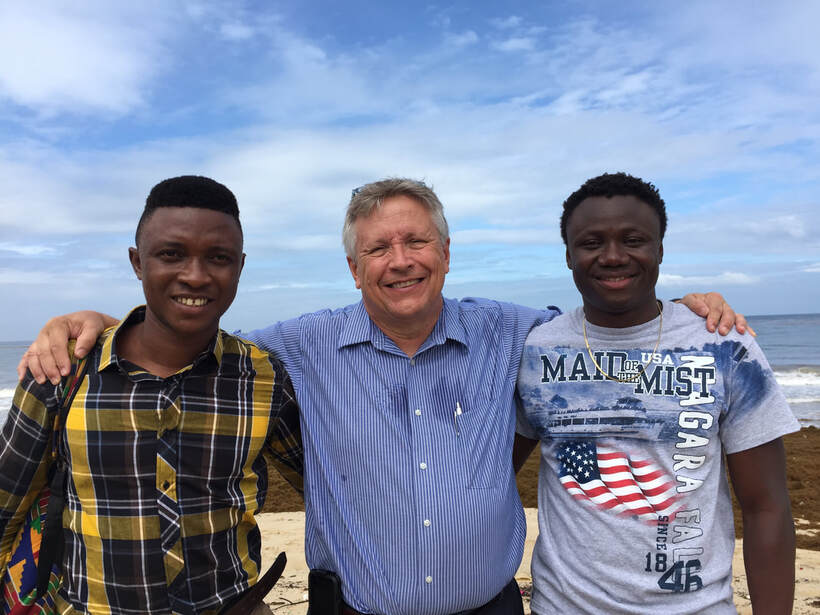 Above: Dr. Gary Gilkeson on the beach in Freetown with Dr. Aruna Stevens (left) and HCW Assistant Director for Mission Advancement Mohamed “Nabs” Nabieu. At the time of the photo, Nabs was Child Reintegration Centre Director. Above: Dr. Gary Gilkeson on the beach in Freetown with Dr. Aruna Stevens (left) and HCW Assistant Director for Mission Advancement Mohamed “Nabs” Nabieu. At the time of the photo, Nabs was Child Reintegration Centre Director. Prior to 10 years ago, not in my wildest dreams did I envision myself being involved with Mercy Hospital or the Child Reintegration Centre. I am a rheumatologist, and research in lupus is my career path. Twenty odd years ago, when I moved from Duke University to Medical University of South Carolina, I learned about a unique group of African Americans living on the Sea Islands of South Carolina and Georgia, called the Gullah or Geechee. It became evident that Gullah individuals had a high prevalence of lupus, with significant morbidity and mortality. At that time, I also learned that the Gullah were forcibly brought to America, particularly to South Carolina, due to their rice growing skills (then the cash crop in Charleston). Sierra Leone to Senegal was the primary region in West Africa from which the Gullah were taken. After the civil war, the Gullah remained on the Sea Islands with very little interaction with others on the mainland. In the meantime, papers were published that suggested lupus was rare in West Africa. Given that, as in almost all diseases, lupus is believed to be a result of a genetically susceptible host responding to an environmental factor (infection, toxin) unleashing the immune system to attack the body, and assuming that the Gullah would genetically still be similar to their ancestral forebears, we embarked on a program to define genetic and potential environmental differences in the Gullah and Sierra Leoneans. Through United Methodist Volunteers In Mission (UMVIM), I was connected with Dr. Darius Magee who is a retired gynecologist in Texas. He had established the West Africa Fistula Foundation in Bo soon after the civil war ended. He worked out of the Bo Government Hospital diagnosing and repairing urethral and bladder damage that occurred during childbirth. Given that he was treating young women, who are at the highest risk for lupus, I accompanied him on three different trips to Bo from 2009 to 2013. I helped out in the ER and clinic at the Government Hospital, while trying to figure out how to address our research questions. It soon became evident that there was no way to screen the population in Sierra Leone, for it would be unethical, since we could not provide them with long term treatment. We were able, however, to acquire blood samples and subsequent DNA samples from a number of individuals, testing them at the same time for malaria and providing them treatment for malaria if they were positive. During the last visit to Sierra Leone, I learned of Mercy Hospital and went there for a visit with a colleague. An HCW UMVIM team had arrived the night before and the team leader graciously invited us in for a tour and offered for us to stay for lunch (my first interaction with Fudia). We toured the hospital and the Naval Research Laboratory where I met Rashid, and we began a collaborative effort for genetic studies along with the Helen Keller Foundation. Each time I went to Bo, I became more and more tied to it and the wonderful people of Sierra Leone. I investigated Helping Children Worldwide and was greatly impressed with the programs they had in Bo. Mary Ann, my wife, also became interested in doing more with HCW. We were able to get our local church, Bethel United Methodist Church, to become a partner church. This all happened during the time of Ebola, so there were no more trips, but through Rashid we were able to send a large number of personal protective equipment to Mercy. In July of 2018, Mary Ann and I went on our first trip with a HCW team. This was also Mary Ann’s first trip to Sierra Leone. I had a feeling she would feel the draw like I did, and she was immediately overwhelmed at the multiple wonderful things going on in Bo. The eleven others on our team became best friends with whom we still communicate. Of course we met (then-CRC Director) Nabs, his wife Kim, JJ, JB, Rosa, Fudia, Jinnah, Sister Augusta and Dr. Amara. We had taken a large amount of medical equipment and supplies with us donated by MUSC. As many of you are aware, we hated to leave. In July of 2019 we returned for our second trip along with two other Bethel members: Misti, a PhD nutritionist and diabetes educator, and Beth, a neonatal ICU nurse. We reunited with Sharon from Texas, and again were just overwhelmed by our experience on outreach, visiting a village where our church had provided funds for drilling a well, and seeing the children we are sponsoring. We were on the team for July of 2020, but regrettably it was canceled due to COVID-19. Beth and Misti were planning to return as well. Meanwhile, Mary Ann had been asked to join the Board of Directors and she accepted. We have enjoyed meeting all the other believers and hosting many of them at our home. I have biweekly calls with Dr. Stevens to help in whatever way I can, especially with the COVID-19 virus just hitting there. Mary Ann and a friend of ours have made COVID-19 masks with the outer material made of fabric we brought back from Sierra Leone. The masks are a big hit. In the end, my experiences in Bo and with HCW are some of the most meaningful experiences in my life. It is especially fun having this relationship for Mary Ann and I to enjoy and support together. We realize we are not changing the world, but for the children we sponsor, and with the equipment and expertise we provide, we believe we are at least changing the world for a few folks in Bo.
0 Comments
Local Girl Scout Troop 3327, led by parent volunteer Jenny Bradshaw, assembled 90 layette kits for Mercy Hospital's maternity ward. Every woman who gives birth at the hospital receives a layette kit, including two each of cloth diapers, shirts or onesies, washcloths, diaper pins, and a receiving blanket. The layette items were donated to Floris United Methodist Church's alternative giving initiative this past Christmas. The kits are deeply appreciated by the women who give birth at Mercy, most of whom have very little money. We are grateful to Troop 3327 and Floris UMC for their generous donation of time and materials. If your organization is interested in assembling layette kits for Mercy Hospital, please contact Missions Specialist Linda Reinhard at [email protected]. These are the guidelines for the kits:
|
Follow us on social media
Archive
July 2024
Click the button to read heartfelt tributes to a beloved Bishop, co- founder of our mission!
Post
|
Helping Children Worldwide is a 501 (c) 3 nonprofit organization | 703-793-9521 | [email protected]
©2017 - 2021 Helping Children Worldwide
All donations in the United States are tax-deductible in full or part. | Donor and Privacy Policy
©2017 - 2021 Helping Children Worldwide
All donations in the United States are tax-deductible in full or part. | Donor and Privacy Policy

